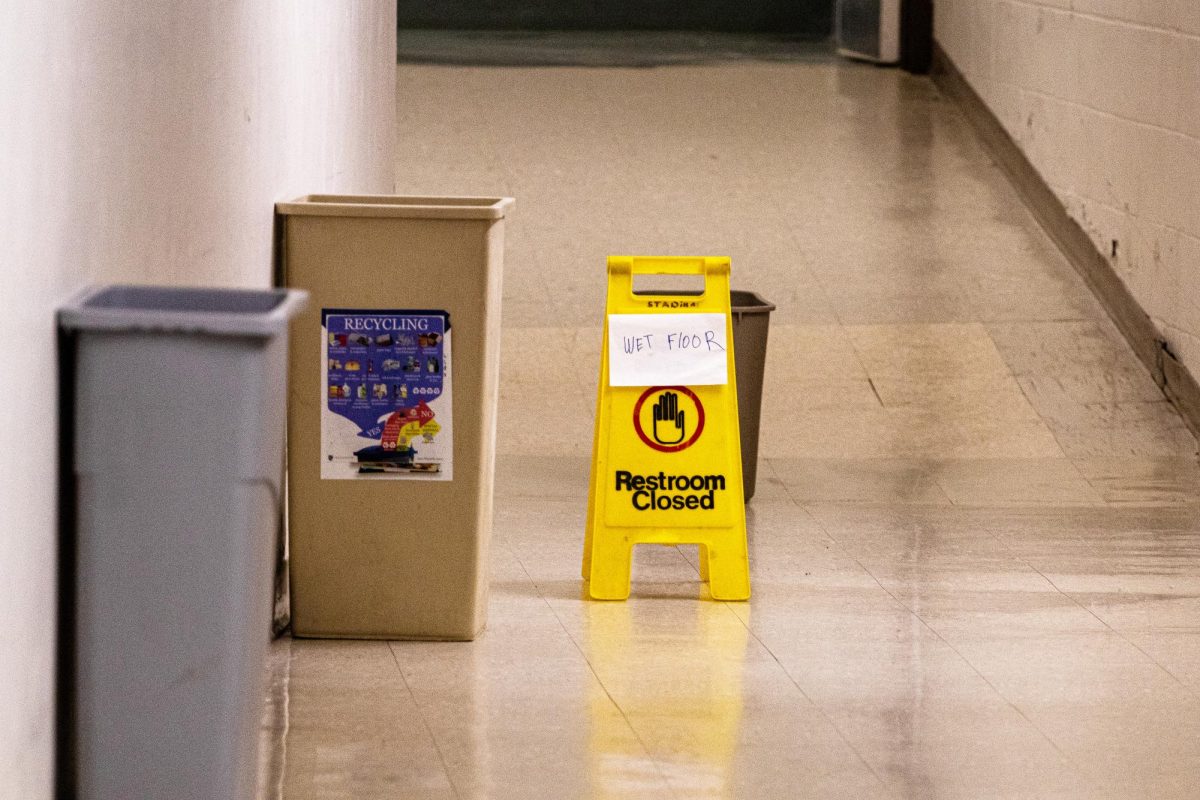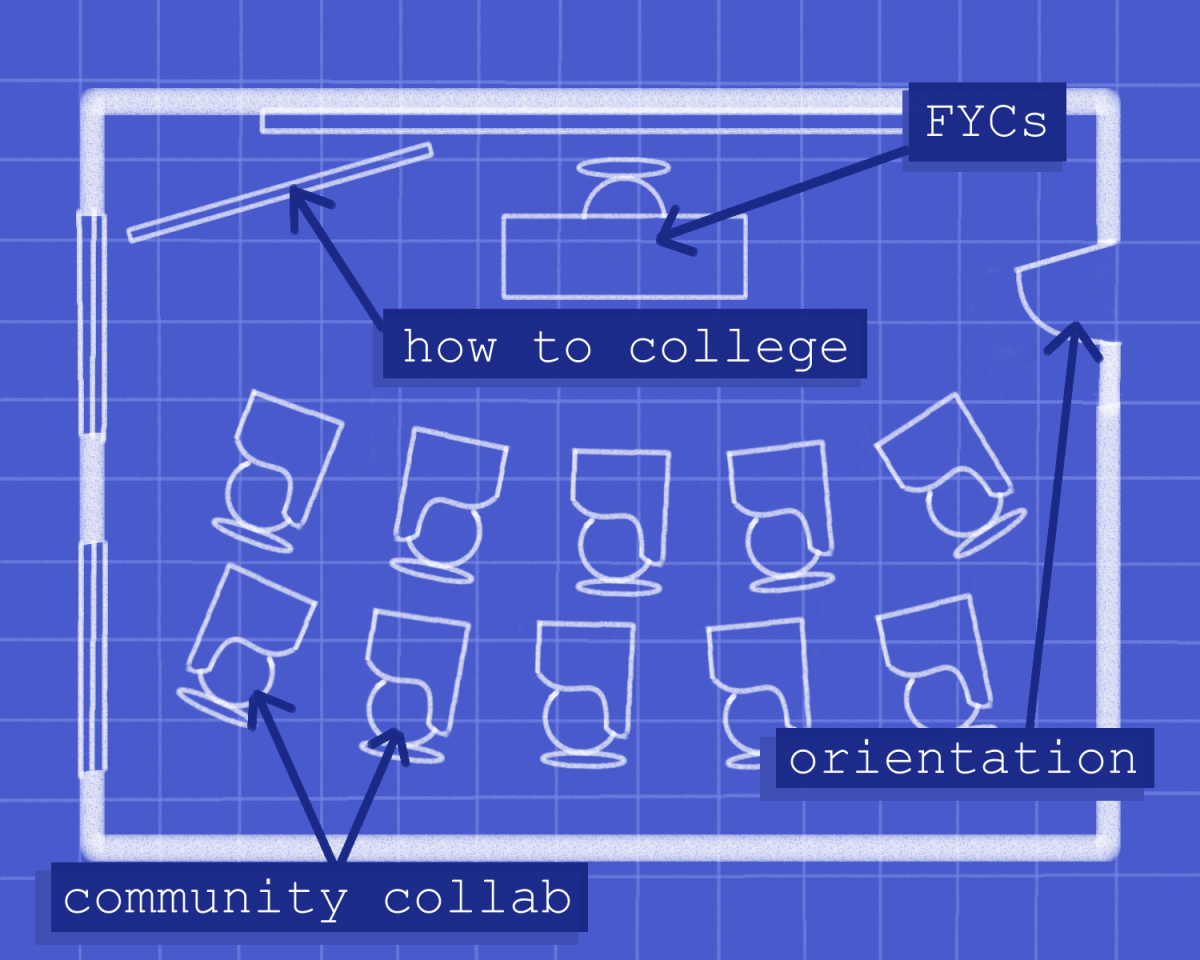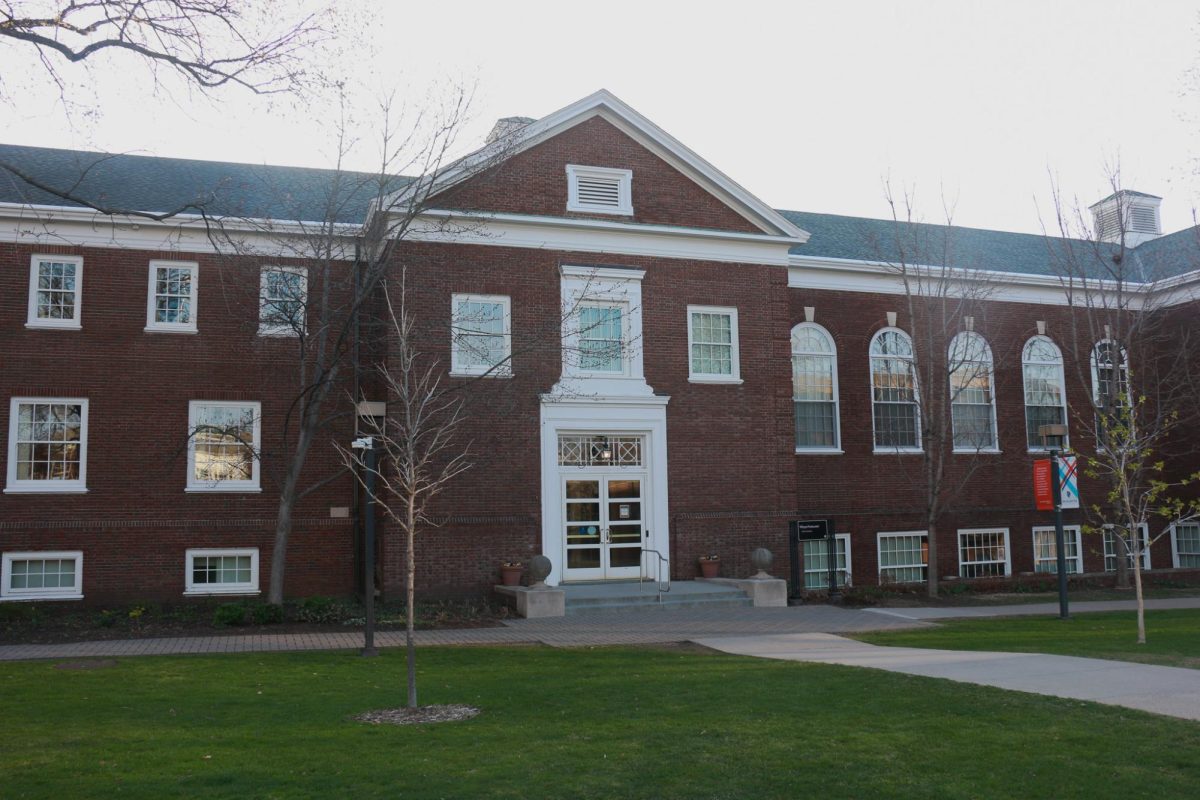Mathematics, statistics and computer science (MSCS) is the largest department at Macalester. It boasts a great deal of diversity, with a population of more than 50 percent international students, and has an enthusiastic and dedicated faculty and staff.
But, for some students, MSCS is lacking when it comes to representation of female-identified students.
“There are not many pure math majors who are female and there are even fewer that are domestic students of color in the major, so the numbers start to get really small,” said Kyla Martin ’15. “This is the first year where I’ve ever done group projects where I’ve had females in my group.”
Ruthie Berman ’17 said, “With the students in [computer science], the gender distribution is pretty much atrocious. I mean that there are definitely a ton more male students than female students.”
The issue of representation of women in math and computer science extends far beyond Macalester. Women in the United States receive 43.1 percent of bachelor’s degrees in mathematics and statistics and 18.2 percent in computer science [1]. The lack of women in these fields can discourage some from pursuing their interests after college, while also affecting their experiences as students.
“The industry scares me,” Berman admitted. “There is a huge culture in the computer science industries that is … very exclusive and difficult for women to join and feel comfortable in, so sometimes I do get really, really worried about going into the industry and about feeling awful and ostracized by my coworkers.”
Such attitudes were present among female students in mathematics as well. “I’m aware that as you get into graduate schools and higher up, you tend to see more male representation in math,” Stephanie Duong ’16 said. “It’s a little bit intimidating.”
“When I was an undergraduate … I was the only female computer science major in my year,” Professor Susan Fox said. “It affects the climate, the kinds of things that go on in the lab. When you get a bunch of guys together, they act like guys.”
The climate that Fox refers to continues to exist today. Martin pointed out that women can often feel discouraged from contributing to the discussions around them.
“People without realizing it will question what you’re doing or what you’re saying, especially if it disagrees with their answer or what they’re saying,” Martin said. “That seems to be a common experience [women in mathematics] share.”
“I felt like as a girl, I was behind everyone and that I still am … looked at as if I’m behind,” Berman said.
In computer science specifically, this has led to what is colloquially called “brogrammer” culture, which refers to the “subset of male programmers who believe and reinforce the idea that computer science…should be a male-dominated area,” explained Marla DeVault ’17.
While Fox did not use the same phrase to discuss this culture, she noted that some areas of computer science are still highly exclusionary. “Places where hackers tend to go conferences have been big issues,” she said. “I think there are just not as many women in certain areas…[and they] don’t have enough of a cohort of women that they have had to address the issues involved.”
However, not all MSCS students have had negative experiences within their fields of study. Grace Dickman ’17 described her own math classes as “surprisingly balanced,” adding that, “I don’t feel ostracized in the classroom and I don’t feel like [male students] criticize me more if I answer a question wrong…I feel welcome.”
But Dickman added that she sometimes finds it necessary to “establish [her]self” in male-dominated spaces, such as mathematics. “You have to … show them that you can ‘run with the boys.’ I’ve always had that attitude … Answer questions confidently, show that you know the material, but don’t be afraid to answer questions wrong.”
“You have to act more like a guy in order to fit in,” Berman said. “Or you just don’t fit in.”
These experiences have not gone completely ignored. Macalester College is aware of these issues associated and has taken steps to avoid problematic situations when possible.
“The [MSCS] department…is really actually vibrant and amazing,” Professor Zornitsa Keremidichieva said, emphatic about the department’s efforts to cultivate a welcoming environment. “I think that they have actually been a leader in mathematics education precisely because they have really taken this question to heart of how [the] classroom experience is inviting and nurturing to all sorts of students.”
And it is clear that such questions are considered seriously by the MSCS department faculty. Fox explained some of her own methods to foster a productive and egalitarian learning environment.
“Some male students have a tendency to take over, and they do more so with female students than they would if they were working with another male student,” Fox said. “I’ll … add structure to group projects [so] everyone gets a chance to speak…I try to intervene when it gets really bad and bring a group in to have a conversation about what’s going on…[and] if I’m assigning groups, I’ll look at who I’m putting together and make sure the really take-over kind of students are not necessarily put with students who would not deal well with that.”
Fox did admit that these methods are not perfect. Often, she doesn’t hear about problematic situations until the group assignment has already been completed. The faculty’s ability to control students’ interactions outside of class is understandably limited. But for some students, there are still steps that Macalester could take to improve the classroom environment.
“In all departments, it’d be great if [faculty] could recognize how to be an ally to students who are a minority,” Martin said. “And women of color in the math department! … The Math department is really good at [gender equality], which I think is great. But as a person of color, I’d like to see more math people of color in the department.”
Berman pointed out that male students could work towards welcoming classmates of all genders as well. “Just knowing the fact that I’m not as comfortable in a [male-dominated] class and going an extra step to make sure that my ideas are heard equally is really meaningful to me,” she said.
Ultimately, the problems that plague MSCS at Macalester (and beyond) cannot change until the culture surrounding these academic fields, and the ways we view women’s roles within them, change as well. And such changes require concerted efforts from everyone: the administration, faculty and all students.
Until such changes occur, minority students must seek out supportive spaces to help them with the difficulties that they face.
“Cultivate a culture of collaboration,” Keremidchieva advised. “And commit to the idea that more minds are better than one. Be inquisitive. Think about what you do personally for the common good.”
Martin recommended a similar approach: creating communities of students that share common experiences. “If you can find other people in your major that look like you, whatever that means to you, it’s really good to connect with [them]…you think you’re alone when you’re really not. It’s important to reach out.”
Such communities can be invaluable when it comes to the support and friendship that they can provide. The knowledge that your experiences are not isolated, and that others can understand what you feel, is extraordinarily powerful. And these collaborations, which begin as simple conversations and common complaints, can grow into something much bigger.
“Bring your concerns to the attention of the group,” Keremidchieva said. “If you repeat and repeat and repeat the message, eventually it becomes part of the atmosphere. And then, slowly things change, when there is a will. When there is a will, change comes.”
[1] NSF, Women, Minorities, and Persons with Disabilities in Science and Engineering, 2015.







John Bailey • Sep 11, 2019 at 10:31 pm
My partner and I stumbled over here from a different page and thought I might check things out. I like what I see so i am just following you. Look forward to looking into your web page again.
Charles Russell • Sep 10, 2019 at 4:08 pm
Good – I should certainly pronounce, impressed with your site. I had no trouble navigating through all tabs and related information ended up being truly easy to do to access. I recently found what I hoped for before you know it at all. Quite unusual. Is likely to appreciate it for those who add forums or anything, website theme . a tones way for your client to communicate. Nice task..
Julian Young • Sep 6, 2019 at 8:14 pm
naturally like your website but you need to check the spelling on several of your posts. Several of them are rife with spelling problems and I in finding it very troublesome to inform the truth then again I’ll surely come back again.